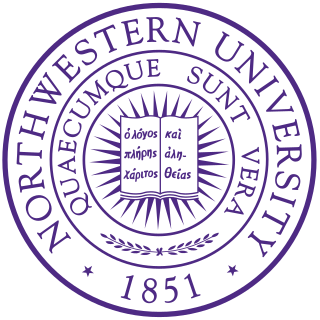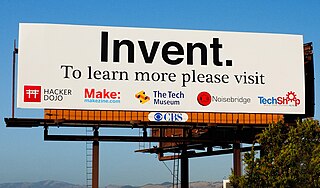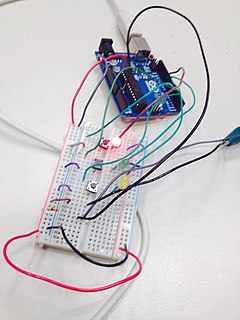This article has multiple issues. Please help improve it or discuss these issues on the talk page . (Learn how and when to remove these template messages) (Learn how and when to remove this template message)
|
Critical theory of maker education asserts that maker education curriculum and pedagogy necessarily aligns itself with the greater educational imperative (as described in the Critical Pedagogy Primer ) that "questions of democracy and justice cannot be separated from the most fundamental features of teaching and learning" (p. 5). [1] Foundational Critical Theorists like Paulo Freire in his seminal work, Pedagogy of the Oppressed , stressed the need for a new relationship between teacher, student, and school, that would cultivate in students radical liberation from the political injustices that oppress them. Maker education is another avenue by which radical liberation is possible.
Maker education closely associated with STEM learning, is an approach to problem-based and project-based learning that relies upon hands-on, often collaborative, learning experiences as a method for solving authentic problems. People who participate in making often call themselves "makers" of the maker movement and develop their projects in makerspaces, or development studios which emphasize prototyping and the repurposing of found objects in service of creating new inventions or innovations. Culturally, makerspaces, both inside and outside of schools, are associated with collaboration and the free flow of ideas. In schools, maker education stresses the importance of learner-driven experience, interdisciplinary learning, peer-to-peer teaching, iteration, and the notion of "failing forward", or the idea that mistake-based learning is crucial to the learning process and eventual success of a project.

Critical Pedagogy Primer is a book by Joe L. Kincheloe published by Peter Lang. Like other "primers" published by Peter Lang, it is an introductory text on the topic of critical pedagogy aimed at a wider audience with its use of more accessible language. The book has wide margins suitable for reader annotations, and many terms and their definitions are included in these margins for accessibility.

Paulo Reglus Neves Freire was a Brazilian educator and philosopher who was a leading advocate of critical pedagogy. He is best known for his influential work, Pedagogy of the Oppressed, generally considered one of the foundational texts of the critical pedagogy movement.
Scholars Shirin Vossoughi and Paula K. Hooper of Northwestern University, and Meg Escude of Exploratorium, offer an in-depth look at the ways in which maker education reinforces educational inequality by perceiving learners from backgrounds that are not "grounded in gendered, white, middle-class cultural practices" through the deficit lens of the culture of poverty. Not only do Vossoughi, Hooper, and Escude critique maker education as it is currently practiced, they also offer proposed solutions for "equity-oriented design" of maker experiences which include, "critical analyses on educational injustice, historicized approaches to making as cross-cultural activity, explicit attention to pedagogy, and inquiry into the sociopolitical values and purposes of making".

Northwestern University (NU) is a private research university based in Evanston, Illinois, United States, with other campuses located in Chicago and Doha, Qatar, and academic programs and facilities in Miami, Florida; Washington, D.C.; and San Francisco, California. Along with its undergraduate programs, Northwestern is known for its Kellogg School of Management, Pritzker School of Law, Feinberg School of Medicine, Bienen School of Music, Medill School of Journalism, and McCormick School of Engineering and Applied Science.

The Exploratorium is a museum in San Francisco that allows visitors to explore the world through science, art, and human perception. Its mission is to create inquiry-based experiences that transform learning worldwide. It has been described by the New York Times as the most important science museum to have opened since the mid-20th century, an achievement attributed to "the nature of its exhibits, its wide-ranging influence and its sophisticated teacher training program". Characterized as "a mad scientist's penny arcade, a scientific funhouse, and an experimental laboratory all rolled into one", the participatory nature of its exhibits and its self-identification as a center for informal learning has led to it being cited as the prototype for participatory museums around the world.
Educational inequality is the unequal distribution of academic resources, including but not limited to; school funding, qualified and experienced teachers, books, and technologies to socially excluded communities. These communities tend to be historically disadvantaged and oppressed. More times than not, individuals belonging to these marginalized groups are also denied access to the schools with abundant resources. Inequality leads to major differences in the educational success or efficiency of these individuals and ultimately suppresses social and economic mobility. See Statistic sections for more information.
In his article "A more lovingly made world", [2] McKenzie Wark of The New School writes that the problem with maker culture is that makers don't actually make things, they assemble them. While this experience is satisfying and fun (and Wark does acknowledge the way in which his children are not hemmed in by gender expectations while playing at the Maker Faire), it doesn't teach the underlying principles required for the actual making of functional objects. It also does not, though Chris Anderson and Mark Hatch evoke Marx in their Maker manifestos, map accurately onto an understanding of labor, and certainly not the life of the laborer.

The New School is a private non-profit research university centered in Manhattan, New York City, located mostly in Greenwich Village. It was founded in 1919 as The New School for Social Research with an original mission dedicated to academic freedom and intellectual inquiry and a home for progressive thinkers. Since then, the school has grown to house five divisions within the university. These include the Parsons School of Design, the Eugene Lang College of Liberal Arts, The New School for Social Research, the Schools of Public Engagement, the College of Performing Arts which consists of the Mannes School of Music, the School of Drama, and the School of Jazz and Contemporary Music. In addition, the university maintains the Parsons Paris campus and has also launched or housed a range of institutions, such as the international research institute World Policy Institute, the Vera List Center for Art and Politics, the India China Institute, the Observatory on Latin America, and the Center for New York City Affairs.

Chris Anderson is a British-American author and entrepreneur. He was with The Economist for seven years before joining WIRED magazine in 2001, where he was the editor-in-chief until 2012. He is known for his 2004 article entitled The Long Tail; which he later expanded into the 2006 book, The Long Tail: Why the Future of Business Is Selling Less of More. He is the cofounder and current CEO of 3D Robotics, a drone manufacturing company.

Karl Marx was a German philosopher, economist, historian, sociologist, political theorist, journalist and socialist revolutionary.
Alessandro Carelli, Massimo Bianchini, and Venanzio Arquilla of the Politecnico di Milano argue that maker culture presents a "maker contradiction" in which DIY producers in the "so-called Third Industrial Revolution" become post-production consumers, further reinforcing hierarchies of social, political, and economic power. [3]

The maker culture is a contemporary culture or subculture representing a technology-based extension of DIY culture that intersects with hacker culture and revels in the creation of new devices as well as tinkering with existing ones. The maker culture in general supports open-source hardware. Typical interests enjoyed by the maker culture include engineering-oriented pursuits such as electronics, robotics, 3-D printing, and the use of Computer Numeric Control tools, as well as more traditional activities such as metalworking, woodworking, and, mainly, its predecessor, the traditional arts and crafts. The subculture stresses a cut-and-paste approach to standardized hobbyist technologies, and encourages cookbook re-use of designs published on websites and maker-oriented publications. There is a strong focus on using and learning practical skills and applying them to reference designs. There is also growing work on equity and the maker culture.
Economists use several concepts featuring the word "power":




